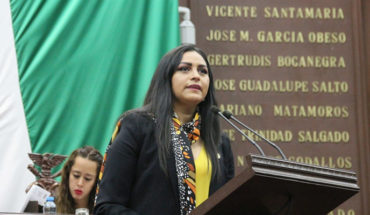For a moment, I tried to imagine that I was an SME producer and that I was embarking on a project for the production and export of food. This issue is, moreover, part of the proposal of the government program of the president-elect (Trade policy and export promotion). Soon, the dream began to fade. I don’t know if it was the lack of adequate information, the excess of irrelevant information, or my generational inability to understand and use the internet, and find the right place to inform myself.
Connecting rural SMEs – including Peasant Family Farming – to national and international marketing networks has been a promise of several presidents. It happens, but so far it has been the exception, rather than the rule. However, I am convinced that access to the “national segment” of this productive-commercial network is perfectly possible: INDAP’s Mundo Rural Stores prove this, especially with regard to agri-food products. SMEs can successfully integrate into national short business circuits with innovative, nutritious, healthy and safe products and, in the process, generate new jobs and income. It will not be easy to make the “leap” to the international level, but we believe that it is possible.
In light manufactures—for example, of leather, wool, or wood—if the raw material has been treated, they generally do not face major income restrictions. Here, support should focus on the issues of marketing and permanence in the market. On the contrary, agri-food products face a multitude of restrictions and / or controls of sanitary or phytosanitary order, hygiene and safety, labeling and, in many cases, norms and technical and / or identity standards, for entry and marketing. In this sector, information, training and highly specialized support are required, which must be managed in a systemic way to access the market, grow and remain successful.
In the paragraphs that follow, we will try to illustrate the challenge facing the president-elect so that, finally, the dream is fulfilled. I want to believe that the cabinet that Boric has presented has the will to support SMEs and Peasant Family Farming, but that is not enough: the proposal must be complied with. No more frustrations or broken promises. And, let’s not forget that the rural world and its SMEs were crucial to winning the elections in the “second round”. Now, we need concrete proposals, an institutionality that is up to the challenges presented by this task and that is committed to this project.
At present, the institutionality and responsibilities required are diluted in various services of the Public Administration, when what is needed is solid leadership and greater coordination. The challenges and problems that these rural SMEs will have to face require systemic and specialized treatment. Yes, the argument of lack of resources will always be present and, in that case, what should be done is to redirect existing resources into other export promotion and promotion activities. However, I can already anticipate that differences of opinion will arise. During my time in the public administration, I heard on more than one occasion the argument of why it is necessary to prioritize the big ones: “… they are the ones who export and bring dollars.” But will we continue to do the same, or will we support those who need it most? And that, incidentally, also contribute to the development of the country.
There are several services and institutions that must be aligned with the objectives of this project. To begin with, in the Ministry of Agriculture, PASO and INDAP they will have to design and program -at the national level- the concrete “landing” of the programmatic proposal, and delegate the international coordination and implementation, in a new Directorate of International Affairs of Minagri really empowered (Why not a new service?). It shall coordinate with the Undersecretariat for the management of the Fund for the Promotion of Silvo-Agricultural Exports and the allocation of its resources. And let’s not forget the Agricultural Attaché Offices that — duly authorized, trained and professionalized — must lead the activity abroad.
However, the most important institutional adjustments must occur in the Chancellery (Minister … good luck with this!). My impression is that, at this moment, if it were not for the management of the Silvo-Agricultural Export Promotion Fund, agri-food issues and the of Peasant Family Farming, would go unnoticed in ProChile. For many different reasons, its management has been dispersed and diluted into new and numerous areas and tasks. Good for them! Thus, it is time that all the activity of ProChile in the agri-food area, pass to a “new” Ministry of Agriculture, for its greater integration and coordination with the issues that this portfolio must carry, which include, by the way, agri-food SMEs.
Ah, Minister Urrejola, that’s not all! Do not forget that consular offices can — and I think they should — do important work in support of our exports. In this case, they could exhibit in the waiting rooms of their Offices, the products of Peasant Family Farming. There are several thousand visitors who come to make arrangements every year to these offices, and that is a great opportunity to publicize those products. The confidence I have in the success of this proposal allows me to offer to organize a “pilot project” in some Consulate in the United States. But, it won’t be easy, minister. Some of the Consuls do not share this enthusiasm and interest in commercial activities, INDAP and Peasant Family Farming.
There are numerous tasks and activities that must be headed and coordinated by the Directorate of International Affairs of Minagri, to successfully implement this project in the international arena. And, where appropriate, with due coordination with INDAP. Among them, the identification of markets of interest and products with export potential should be highlighted; ensure, mobilize and deliver the logistical support and export services required by SMEs; providing financial advice and securing the resources required for export (e.g. through the Promotion Fund); manage the certification of attributes and/or exportable products; facilitate identification and contacts with potential customers, with the support of Commercial Offices and agricultural attaché offices; organize exhibitions and tastings; as well as promoting and managing the development of visits or trade missions to Chile, in particular, of small distribution chains and / or regional supermarkets.
However, the central pillar on which this project should be based is the associativity model that is decided to be used and the level of development that is achieved with the work of the grassroots organizations of the participating SMEs. This associativity is critical to develop the commercial and financial “musculature” that is required, to successfully face challenges of this magnitude in the international market. Without a high degree of associativity it will be difficult to achieve – and maintain over time – the levels of competitiveness demanded by the international market. In these projects, the competition is extreme and “second chances” are rarely given, so it is necessary to “do it right the first time”. The project must guarantee from the beginning, quality, consistency, volumes and continuity, in all aspects and phases of the process.
I conclude this column by highlighting a second and final “pillar” that should serve as the sustenance of the project: adequately train producers and exporters, and let’s not forget the mentors and support staff of the Services that will lead this project. All this is especially necessary in the remote regions, a task that should be headed by the Directorate of International Affairs of the Ministry of Agriculture, together with INDAP.
The content expressed in this opinion column is the sole responsibility of its author, and does not necessarily reflect the editorial line or position of El Mostrador.





